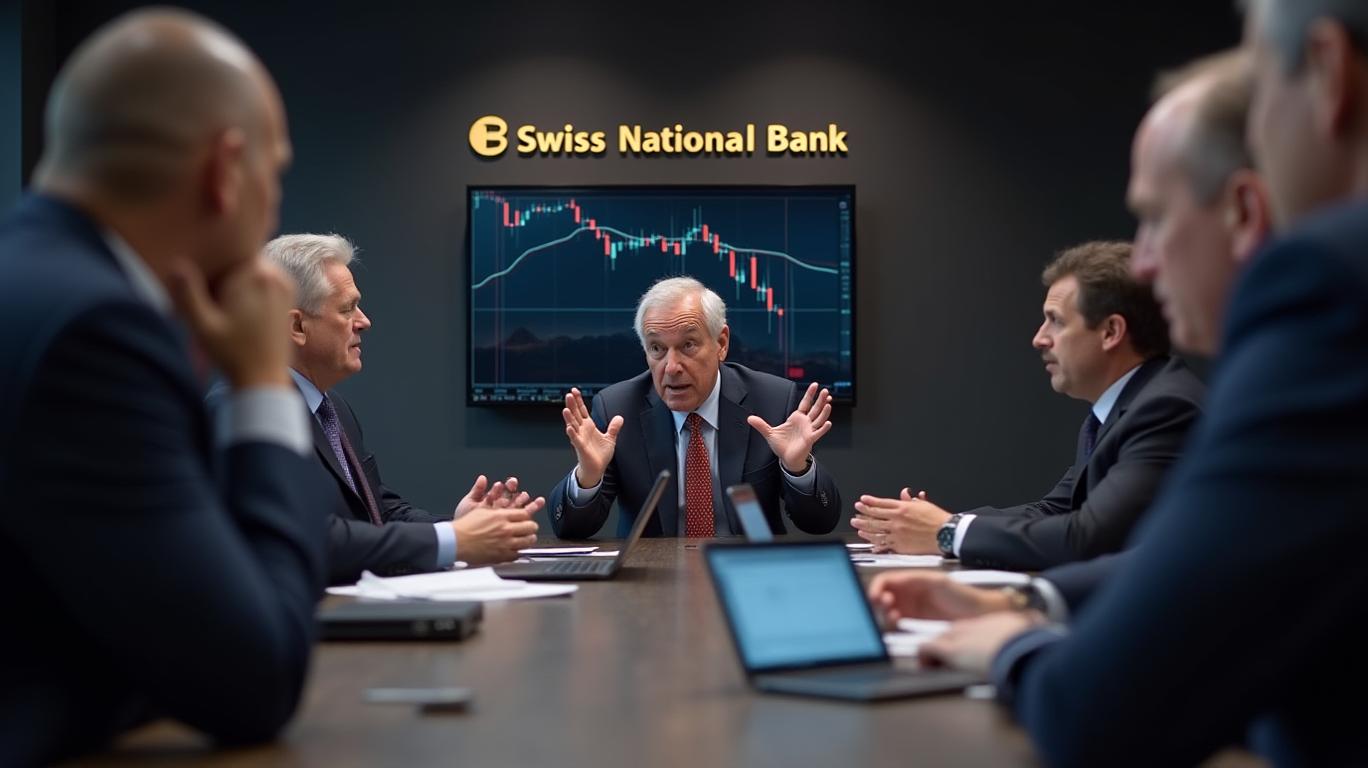Swiss National Bank Rejects Bitcoin Reserves Citing Volatility
The Swiss National BankNBHC-- (SNB) has firmly rejected calls to include bitcoin in its reserves, citing concerns over the cryptocurrency's market liquidity and volatility. SNB President Martin Schlegel, speaking at the bank’s General Assembly meeting, highlighted that while market liquidity for cryptocurrencies might seem adequate at times, it is often questioned during crises. He also noted that the high volatility of cryptocurrencies poses a risk to long-term value preservation, making them unsuitable for the bank's reserve requirements.
Schlegel's remarks were in response to the Bitcoin Initiative, a group advocating for bitcoin, which presented research indicating that adding bitcoin to Switzerland’s treasury would enhance its overall portfolio and yield substantial returns with minimal volatility. The initiative argued that bitcoin's volatility should be evaluated in the context of its impact on the entire investment portfolio, rather than in isolation. Luzius Meisser, a member of the Bitcoin Initiative and board member of Bitcoin Suisse, emphasized that bitcoin has shown resilience under market stress and remains highly liquid, with trading volumes in the billions daily, even on bank holidays. He also pointed out the reliability and security of the Bitcoin network and the strategic bitcoin stockpile initiated by the United States.
The Bitcoin Initiative suggested that the SNB's reluctance to adopt bitcoin might be politically motivated, as it could be seen as an expression of distrust towards other currencies and potentially harm relations between Switzerland and the European Union. This stance contrasts with the European Central Bank President Christine LaGarde's consistent criticism of bitcoin, describing it as a highly speculative asset linked to money laundering. LaGarde has expressed confidence that bitcoin will not enter the reserves of any central banks under the ECB's jurisdiction. Similarly, the central banks of Poland and Romania have ruled out holding bitcoin reserves, citing concerns over liquidity, security, and criminal associations. The Federal Reserve chair Jerome Powell also stated that the U.S. central bank is not allowed to own bitcoin per the Federal Reserve Act and has no plans to change the law.
Despite these reservations, the SNB has indirect exposure to bitcoin through its investments in companies that hold bitcoin, such as Strategy, TeslaTSLA--, MARA HoldingsMARA--, and CleanSpark. Schlegel reiterated the SNB's stance against adding bitcoin reserves as recently as last month, while also mentioning the bank's pilot project using central bank digital currencies to facilitate payments between financial institutions. This project contrasts with the U.S. President's executive order establishing a strategic bitcoin reserve and crypto stockpile, along with a Crypto Council to evaluate budget-neutral ways to supplement U.S. digital reserves. The order also prohibits government agencies from creating or promoting a central bank digital currency in the United States due to privacy concerns for citizens.

Quickly understand the history and background of various well-known coins
Latest Articles
Stay ahead of the market.
Get curated U.S. market news, insights and key dates delivered to your inbox.



Comments
No comments yet